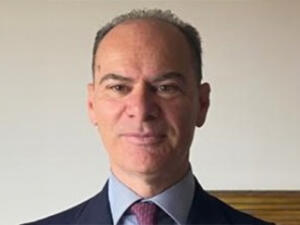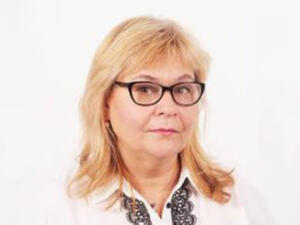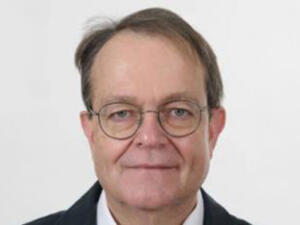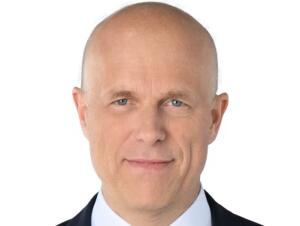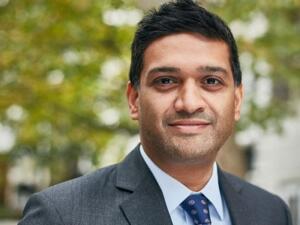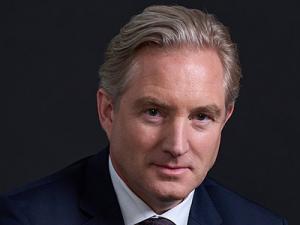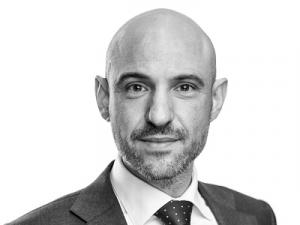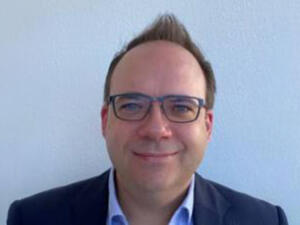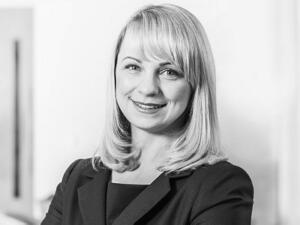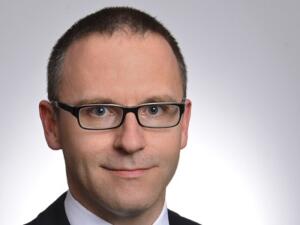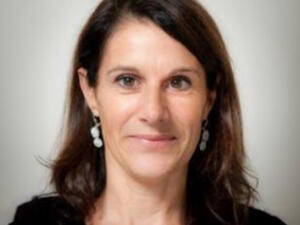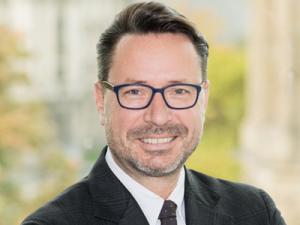Race for first substantial UPC judgment — why July will be decisive
Following a good start, patent experts are now waiting for the court's first substantial judgments in infringement and revocation proceedings. With four judgments from Düsseldorf, Munich and Paris, the coming weeks will give an impression of the court's future direction.
20 June 2024 by Mathieu Klos
In early June, a major rendezvous took place at the UPC’s Paris central division as the court heard its first revocation case in Meril Life Sciences vs. Edwards Lifesciences. Paolo Catallozzi presided over the hearing, with the participation of Tatyana Zhilova and technically qualified judge Stefan Wilhelm.
Edwards had taken the dispute to the UPC last year, and several Meril subsidiaries responded with counterclaims for revocation at the Munich local division.
- Paolo Catallozzi
- Tatyana Zhilova
- Stefan Wilhelm
However, because Meril Italy had filed its own isolated nullity action against EP 3 646 825 with the Paris central division, the Munich local division referred the counterclaims to Paris and the court heard all attacks against Edwards’ patent together on 7 June (case IDs: ACT_551308/2023, ACT_584916/2023 and ACT_585030/2023).
Multiple firms mobilised
Around 30 lawyers and patent attorneys as well as the two medical device manufacturers’ in-house representatives were present, both in Paris and remotely.
Meril mobilised five law firms for the attack on EP 825. In addition to the two French law firms Gide Loyrette Nouel, led by Emmanuel Larère and Raphaelle Dequiré-Protier, and a team from Regimbeau, led by Anne Seibel, a team from Hogan Lovells was also present. The latter firm is coordinating the overall dispute for Meril Europe-wide with Andreas von Falck and Alexander Klicznik leading the charge. Patent attorneys from Marks & Clerk and lawyers from Wildanger Kehrwald & Graf von Schwerin were also involved. The dispute is also raging in national patent courts.
- Andreas von Falck
- Alexander Klicznik
Two fewer law firms defended Edwards’ patent, but the defence team was still large. It comprised Powell Gilbert partners Siddarth Kusumakar and Bryce Matthewson, Bird & Bird partner Boris Kreye and patent attorney Bernhard Thum from Thum IP. All are part of Edwards’ core team and are also involved in other proceedings.
- Siddharth Kusumakar
- Bernhard Thum
- Boris Kreye
The judges were well prepared and, according to those involved, they gave little indication of how they saw the case. The court heard the revocation claim for a total of six and a half hours. Each party had two hours to present their arguments, with a round afterwards to address those of the opponent. After putting a few questions to both sides, the judges concluded the hearing.
There were no indications as to when exactly the judges intend to publish their ruling on Edwards’ EP 825. If they stick to the UPC rule of six weeks after the oral proceedings, the judgment would be due on 19 July.
First revocation case in Munich
Meanwhile, judges in Munich were more specific. The Munich central division heard its first revocation case on 4 June, concerning the cholesterol-lowering drugs Praluent and Rapatha. Sanofi and Regeneron challenged Amgen’s patent EP 3 666 797. The court heard both the central revocation claim and the counterclaim for revocation, which the Munich local division had referred to the central division (case ID: ACT_459505/2023 and CC_586764/2023).
- András Kupecz
- Ulrike Voß
- Casper Struve
Presiding Judge Ulrike Voß, András Kupecz and TQJ Casper Struve also want to adhere to the six-week rule but may announce the verdict earlier. A ruling can therefore be expected on 16 July at the latest.
Neither Amgen nor Sanofi spared any expense when it came to their legal teams. Amgen hired six law firms to defend EP 797. Koen Bijvank from Brinkhof and Bardehle Pagenberg’s Johannes Heselberger and Axel Berger took the lead. Teams around Ulrich Dörries from df-mp, Will James from Osborne Clark and Lauren Martin from Quinn Emanuel also contributed to the defence of the patent.
- Johannes Heselberger
- Koen Bijvank
- Axel Berger
Short deadlines, large teams
The size of the teams defending patents against central revocation claims at the UPC is mainly due to the tight deadlines. The team attacking the Amgen patent in Munich on behalf of Sanofi and Regeneron appeared comparatively small. Daniel Wise, Emily Nikolic and Agathe Michel-de Cazotte from Carpmaels & Ransford, and Nils Hölder from Hoffmann Eitle took the lead. Shortly before the trial, both plaintiffs also drew on the pharmaceutical expertise of Gregor König from the Düsseldorf law firm König Szynka Tilmann von Renesse. In addition, Jörg Zwicker from the Munich patent attorney firm ZSP has been advising Sanofi in the dispute for years.
The hearing took place in hybrid form — the central division’s courtroom would probably not have been large enough to accommodate all representatives. Unlike in Paris, the Munich judges gave an intensive introduction to the case and presented their preliminary view. According to those involved in the proceedings, Ulrike Voß and her two colleagues also gave both parties specific instructions as to which topics the lawyers should address in their presentations.
The subsequent discussion focused on the two topics of inventive step and sufficiency of disclosure. The judges refrained from questioning the experts, who both parties had brought to Munich and had probably prepared intensively.
- Emily Nikolic
- Niels Hölder
- Gregor König
Race over infringement judgment
Provided the central divisions in Munich and Paris adhere to the time limits, UPC users will receive an initial indication of how the courts will assess revocation claims by mid-July. The central divison in Milan will have only officially begun its work by then. It is unlikely the first hearings there will take place this year.
Beforehand, however, there will be a showdown in Düsseldorf and Paris. The two local divisons will announce their first infringement judgments on 3 and 5 July respectively. According to JUVE Patent information, these will also be the first ever for the UPC. The main issue will be how strictly the judges impose an injunction in a main proceeding if they find that the patent-in-suit has been infringed and is not declared invalid. Will they follow the German principle of automatic injunction or will they limit its effect, as is practised in other countries?
- Ronny Thomas
- Camille Lignieres
- Matthias Zigann
Düsseldorf versus Paris
The Düsseldorf local division will announce its judgment in the dispute between Kaldewei and Bette over bathtubs for bathroom showers. Kaldewei is demanding that Bette stop selling its products in the UPC region but not in Germany, although the two companies’ home country is the primary sales market. At the oral hearing on 16 May, Bette did not dispute the infringement and focused on convincing the court, presided over by Ronny Thomas, that the patent was not valid (case ID: ACT_459767/2023).
The Paris local division under presiding judge Camille Lignières also plans to publish its judgment in the dispute between Dexcom and Abbot. The division heard the first of several lawsuits between the opponents on 25 May (case ID: ACT_546446/2023). The dispute over glucose-monitoring devices has been raging in national courts for some time. Abbot is relying on an international team from Taylor Wessing, while Dexcom is fighting with Bird & Bird and Quinn Emanuel.
Although the Düsseldorf judges have said they will hand down their rulings on 5 July, there are rumours in Paris that the court may pre-empt Düsseldorf by a few days.
Clarity by the end of the year
Either way, July will be a hot month, not only because summer is arriving in Europe, but also because the four judgments will be only the start of a series of infringement and revocation rulings.
The Munich local division under presiding judge Matthias Zigann will probably announce its first substantial judgment at the end of July. The court heard a further infringement action between Dexcom and Abbott on 4 June and intends to decide quickly. It is currently hearing another action between Avago and Tesla, with the Hamburg local division also hearing an action between the same parties yesterday under presiding judge Sabine Klepsch. Judgements can thus be expected in six weeks.
However, on 17 July the UPC will officially begin its six-week summer break until 23 August. “During these periods, the court continues to operate,” states a decision by the UPC President. This means that the judges may continue to publish judgments.
The local divisions in Düsseldorf, Munich and The Hague will then hear further infringement cases in quick succession. Furthermore, according to reports, the first hearings in Panasonic vs. Oppo and Xiaomi will take place in Mannheim in October. The central divisions in Paris and Munich have also scheduled further revocation actions.
By the end of the year, therefore, UPC users will have a clearer idea of how the UPC will deal with revocation actions and what position judges will take concerning the Europe-wide injunction in main proceedings. If they follow the German approach of issuing automatic injunctions, this should once again significantly boost the attractiveness of the UPC.
©All judges photos from Unified Patent Court.
Update 28.06.2024: JUVE Patent has learned that the Düsseldorf local division now intends to publish its ruling on 3 July instead of 5 July. We have updated the article accordingly.
